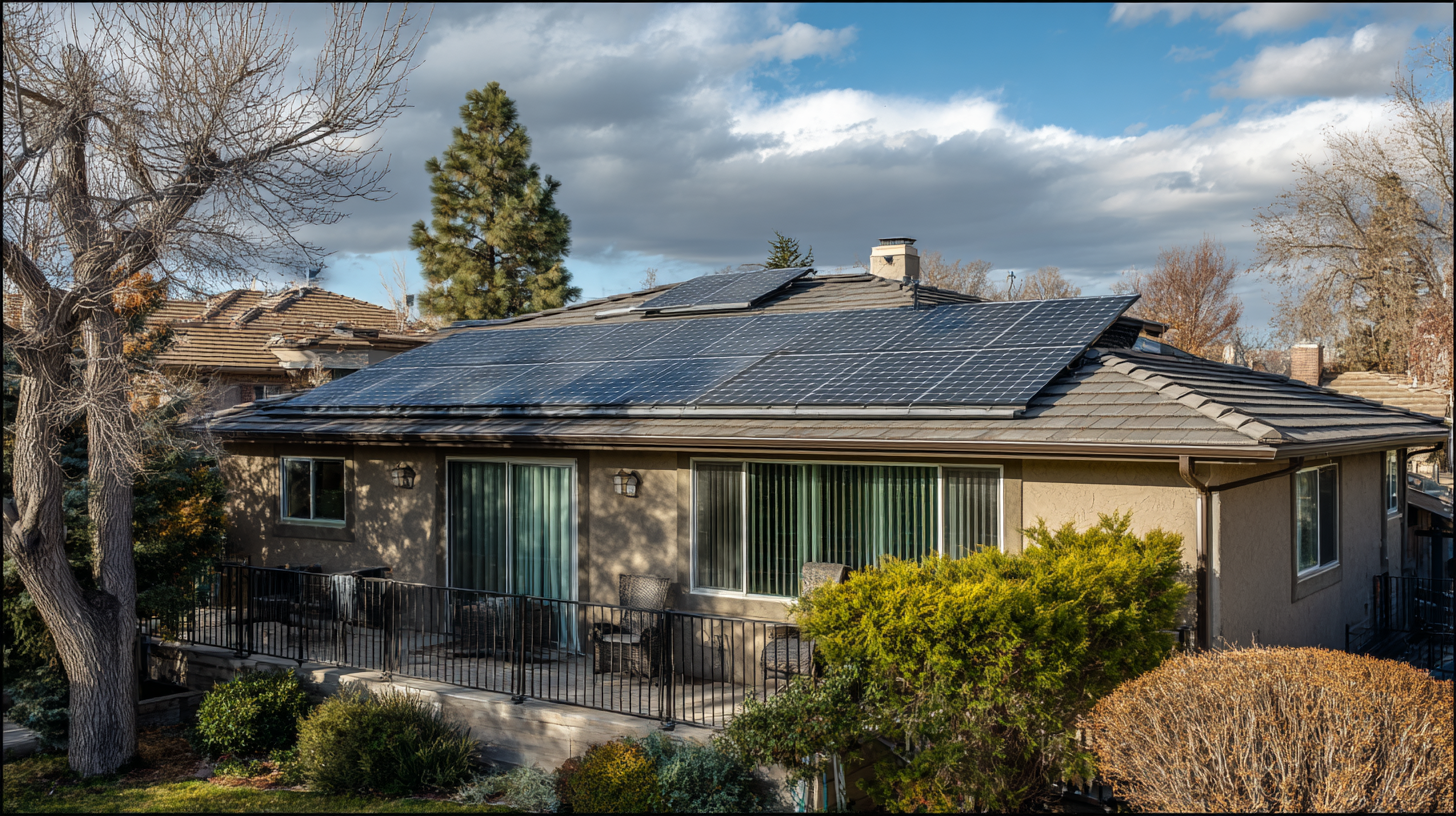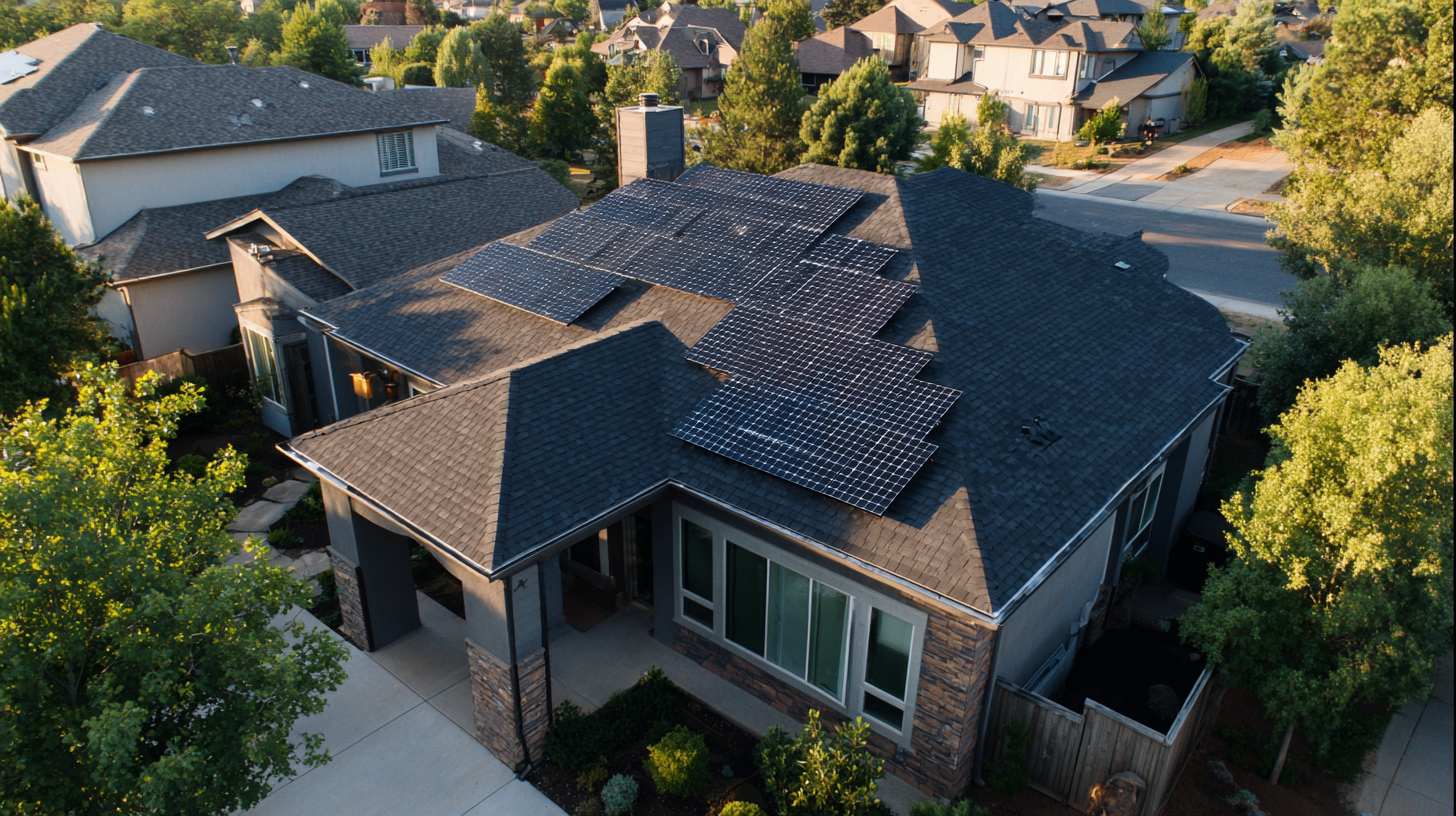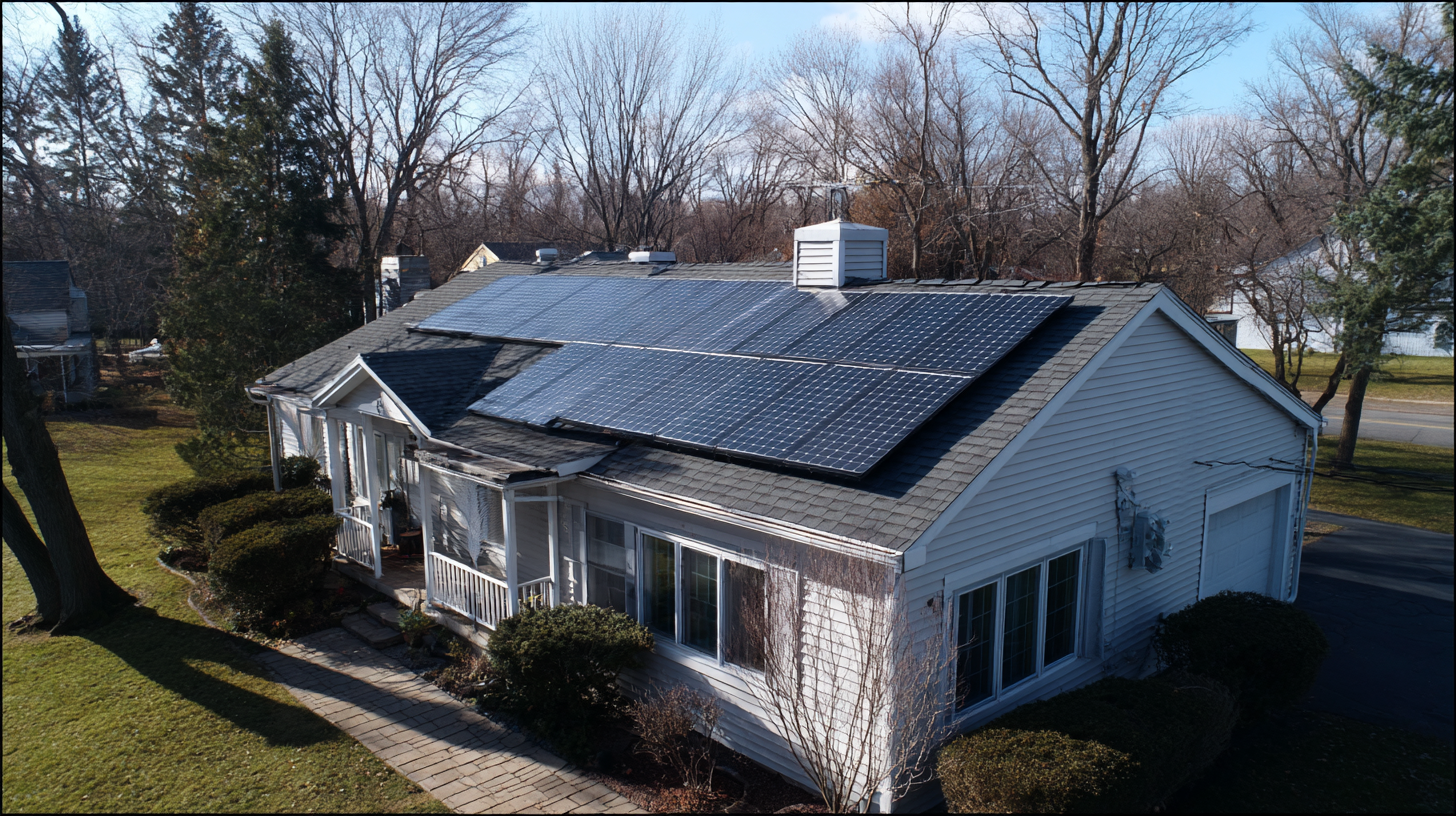Blog
7 Best Benefits of Solar Installation for Your Home in 2023
As the world increasingly embraces renewable energy, solar installation has emerged as a leading choice for homeowners looking to enhance sustainability and reduce energy costs. According to a report from the International Energy Agency (IEA), solar energy accounted for nearly 30% of the global energy transition in 2022, highlighting its pivotal role in combating climate change. In 2023, the U.S. residential solar market is projected to grow by an impressive 20%, driven by significant advancements in solar technology and supportive government incentives. Homeowners are not only witnessing lower electricity bills but also enjoying energy independence and increased property value. This blog will explore the seven best benefits of solar installation for your home, providing insight into why investing in solar energy is not just a trend, but a smart and sustainable long-term decision.

Unlocking Savings: How Solar Installation Can Reduce Your Energy Bills by Up to 30%
Installing solar panels in your home can significantly cut down your energy bills, potentially reducing them by up to 30%. With the rising costs of electricity, making the switch to solar not only adds value to your property but also offers substantial long-term savings. By harnessing the power of the sun, you can generate your very own electricity, allowing you to lower your dependence on the grid and mitigate the impact of utility rate hikes.
To maximize your savings, consider utilizing energy-efficient appliances and optimizing your energy consumption during peak sunlight hours. This simple adjustment can further enhance your overall savings. Additionally, regularly maintaining your solar panel system ensures it operates at peak efficiency, allowing you to reap the benefits of solar energy fully. Lastly, explore available tax incentives and rebates that can help offset the initial investment in solar technology, making it a more feasible option for homeowners looking to save money.
Investing in solar energy is not only an eco-friendly choice but also a smart financial move that can bring immediate and long-term benefits to your household budget.
Increasing Home Value: The Impact of Solar Panels on Property Prices in 2023
In 2023, one of the most significant advantages of installing solar panels in your home is the substantial increase in property value. Solar energy is no longer just a trend; it has become a long-term investment that many homebuyers are actively seeking. Recent studies indicate that homes equipped with solar energy systems are not only more attractive to potential buyers but can command a price premium of 3-4% or more compared to similar homes without solar technology. This growing recognition of solar energy's benefits underscores its role as a valuable asset, transforming the landscape of real estate across the country.
The impact of solar panels on property prices is multifaceted. Potential buyers often prioritize energy-efficient features that promise lower utility bills and reduced carbon footprints. Solar panels provide both immediate savings and future-proofing against rising energy costs, making a home with a solar installation particularly appealing. Furthermore, as sustainability continues to dominate consumer preferences, properties that harness renewable energy sources are positioned favorably in the market, ensuring that sellers can reap the financial rewards of their forward-thinking decisions. As we progress through 2023, the demand for homes with solar installations will likely keep climbing, reinforcing their status as a smart investment for homeowners.

Environmental Benefits: How Solar Energy Can Decrease Your Carbon Footprint by 80%
 Solar energy is rapidly becoming a popular choice for homeowners looking to reduce their environmental impact. By installing solar panels, not only do you harness the power of the sun, but you also take significant steps toward decreasing your carbon footprint. In fact, studies show that households equipped with solar energy systems can reduce their carbon emissions by up to 80%. This remarkable reduction is primarily due to the fact that solar energy is a clean, renewable resource that substitutes fossil fuels, which are the leading contributors to greenhouse gas emissions.
Solar energy is rapidly becoming a popular choice for homeowners looking to reduce their environmental impact. By installing solar panels, not only do you harness the power of the sun, but you also take significant steps toward decreasing your carbon footprint. In fact, studies show that households equipped with solar energy systems can reduce their carbon emissions by up to 80%. This remarkable reduction is primarily due to the fact that solar energy is a clean, renewable resource that substitutes fossil fuels, which are the leading contributors to greenhouse gas emissions.
Moreover, utilizing solar energy goes beyond personal benefits; it contributes to a larger movement toward a sustainable future. As more homes transition to solar power, the demand for non-renewable energy sources diminishes, which can lead to a decrease in harmful emissions on a larger scale. Additionally, the implementation of solar energy can encourage governments and communities to invest more in renewable energy infrastructure, further amplifying the positive environmental impact. By choosing solar installation, homeowners not only enhance their own living spaces but also play a pivotal role in protecting the planet for future generations.
Government Incentives: Maximizing Tax Credits and Rebates for Solar Installation in 2023
In 2023, homeowners looking to install solar panels can significantly benefit from various government incentives designed to offset installation costs. Federal tax credits remain a prominent option, allowing homeowners to deduct a substantial percentage of their solar installation expenses from their federal taxes. This incentive not only makes solar energy more financially accessible but also encourages the transition to renewable energy sources, contributing to a more sustainable environment.
In addition to federal incentives, many states and local governments offer rebates and financial programs specifically aimed at reducing solar installation costs. These can range from upfront cash rebates to tax exemptions and special financing options. For those considering harnessing solar energy, understanding and maximizing these opportunities can lead to considerable savings. Engaging with local solar providers who are well-versed in current incentives can further ensure that homeowners take full advantage of available benefits, making solar energy not just an eco-friendly choice, but also a financially savvy one.
Energy Independence: How Solar Systems Can Protect You from Rising Utility Costs and Supply Issues
Solar energy systems are becoming increasingly beneficial for homeowners looking to achieve energy independence, especially in the face of rising utility costs and supply challenges. With around 5,500 hours of sunlight annually, homeowners can generate significant energy savings by adopting solar technology. A comprehensive review of renewable energies indicates that countries like Morocco are making strides in solar implementation, reflecting a global shift toward sustainable energy sources.
The economic advantages of solar installation are undeniable. For instance, studies reveal that photovoltaic systems continue to produce electricity even in cloudy conditions, ensuring that households are less reliant on traditional utility providers. The European Union's RePowerEU initiative has highlighted the importance of reducing energy waste and increasing clean energy production, underscoring the necessity of decentralized energy systems that empower individuals and foster resilience against fluctuating energy prices.
Furthermore, the growth of rooftop solar technology not only supports energy independence but also stimulates economic resilience by creating jobs and enhancing property values. As the demand for renewable energy solutions continues to rise, investment in solar installation becomes a strategic move to mitigate the effects of rising utility costs while contributing to a greener, more sustainable future.
Related Posts
-

Top Strategies for Successful Solar Installation Projects
-

Exploring Alternative Energy Solutions for Your Residential Solar Needs
-

Challenges Faced During Solar Installation and Their Impact on Efficiency
-

Innovative Approaches to Solar System Installation for Global Procurement Strategies
-

Innovative Approaches to Enhance Solar Power Installation Efficiency
-

How to Choose the Best Home Solar System for Your Needs
